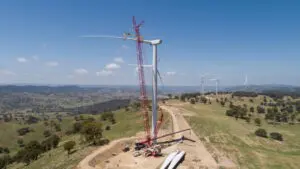A new tool developed to monitor global oil investment has added recorded a 10 per cent, nearly $33 billion cut in capital expenditure from some of the world’s biggest oil companies since 2013, adding weight to analyst predictions that investment in the increasingly volatile market will fall by two-thirds over the next few years.
The monitoring tool, called the Capex Tracker, was launched on Thursday by the Carbon Tracker Initiative as part of an effort rein in capital expenditure (“capex”) on future high-cost oil projects that no longer make economic sense, against a backdrop of six-year oil price lows and and increasingly constrained carbon budget.![]()
It follows new analysis released by oil consultancy Wood Mackenzie, which predicted capital flows into the oil sands would drop by two-thirds in the next few years, and existing projects will bring in $121 billion less over their lifetime than previously forecast.
In the first of what will be regular surveys, the Capex Tracker found that capex budgets for 19 major oil and gas producers – including Exxon Mobil, BP, Total, Chevron and Statoil – had been revised down by $32.7 billion or 10 per cent, since 2013.
It also found that, in the last quarter of 2014 alone, $12.4 billion was stripped away from the 2015 capex budgets of these companies.

Just this week, Royal Dutch Shell announced deferred plans to build a 200,000 barrel-per-day mine in the Canadian oil sands – one of the largest such projects yet to be shelved.
“Shell’s deferral of Pierre River, one of the high-cost oil sands projects that we highlighted in our ‘Carbon supply Cost Curves’ analysis last year, is in line with our belief that companies should cancel capex on high-cost projects in favour of a portfolio of low-breakeven investments in order to protect shareholder value,” said Andrew Grant, a financial analyst at the Carbon Tracker Initiative.
“We wouldn’t be surprised to see many more such announcements if low prices persist,” he said.
Carbon Tracker also hopes that tracking fossil fuel capex will also serve as a useful tool for policymakers and concerned citizens, by shining a light on whether efforts to reduce future carbon emissions are having an impact.
“Capex Tracker is going to provide the world with a leading indicator to understand whether the flows of capital are set to create dangerous levels of climate change,” said Mark Campanale, founder and executive director at the Carbon Tracker Initiative.
“Investment needs to start matching the lower levels of demand for fossil fuels that are required to align with a low carbon future.
“With respect to future emissions from the global energy system, today’s capex commitments are truly where the rubber meets the road,” said Campanale.








